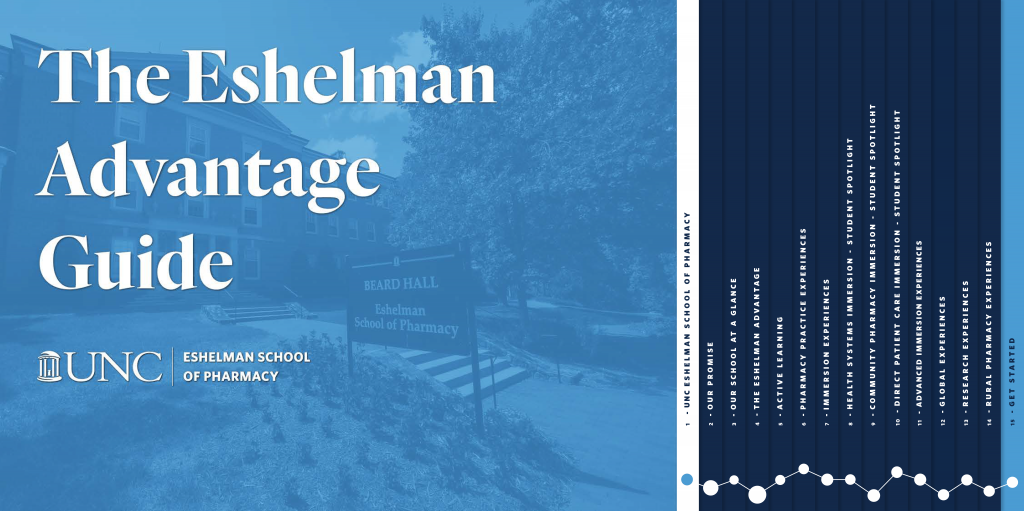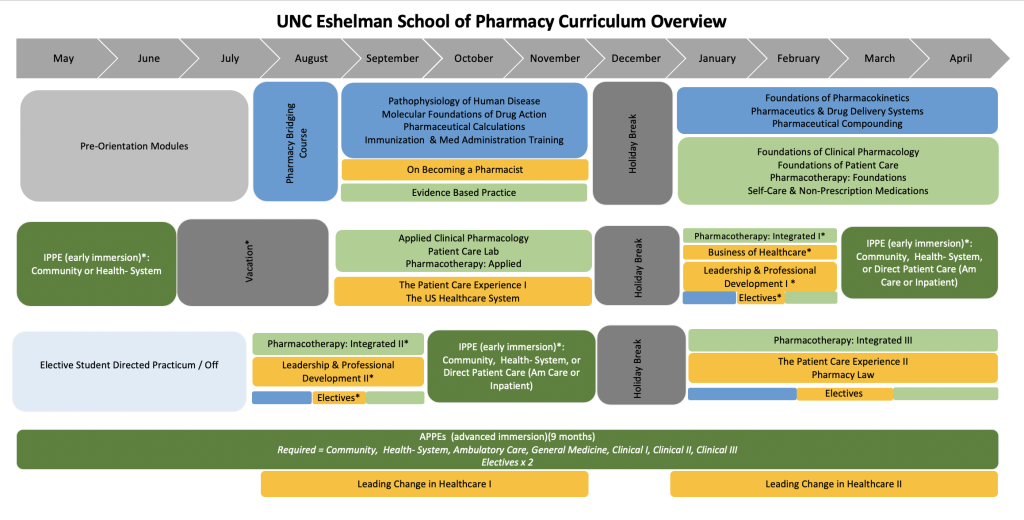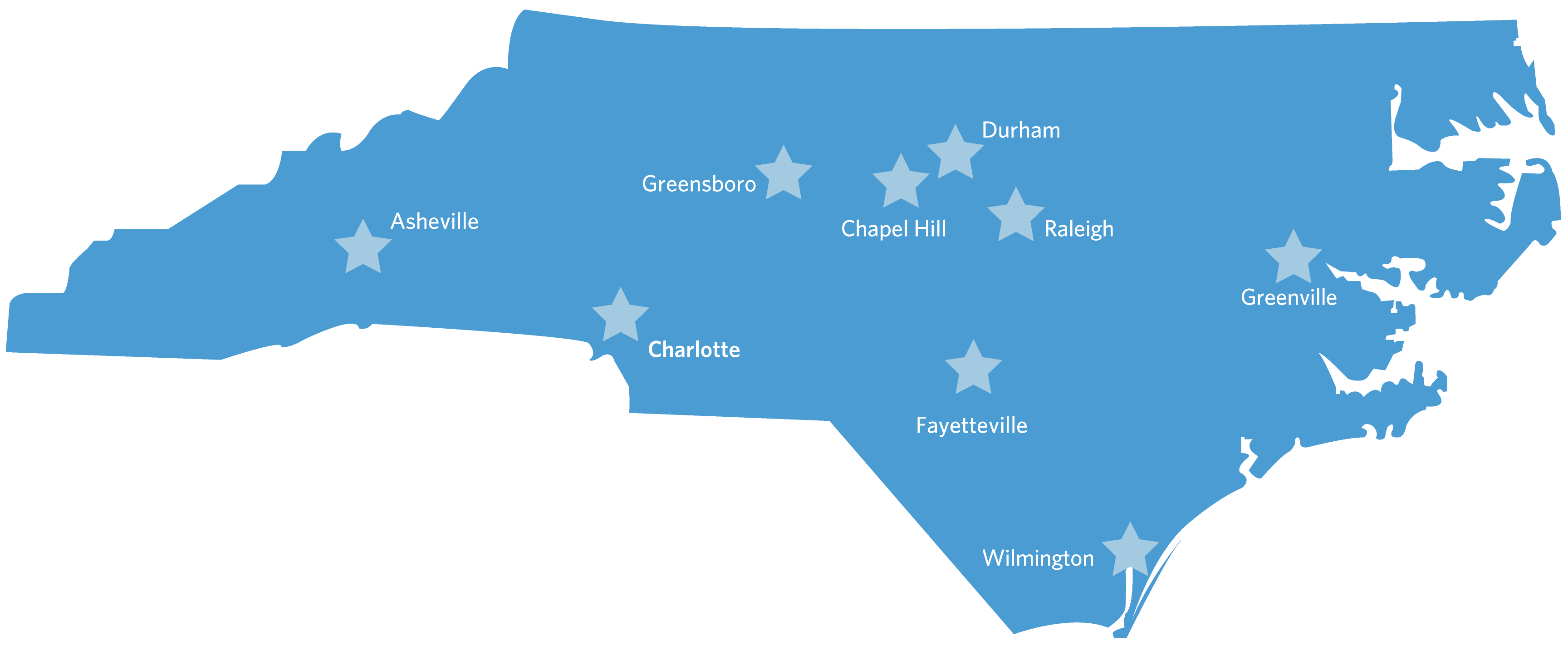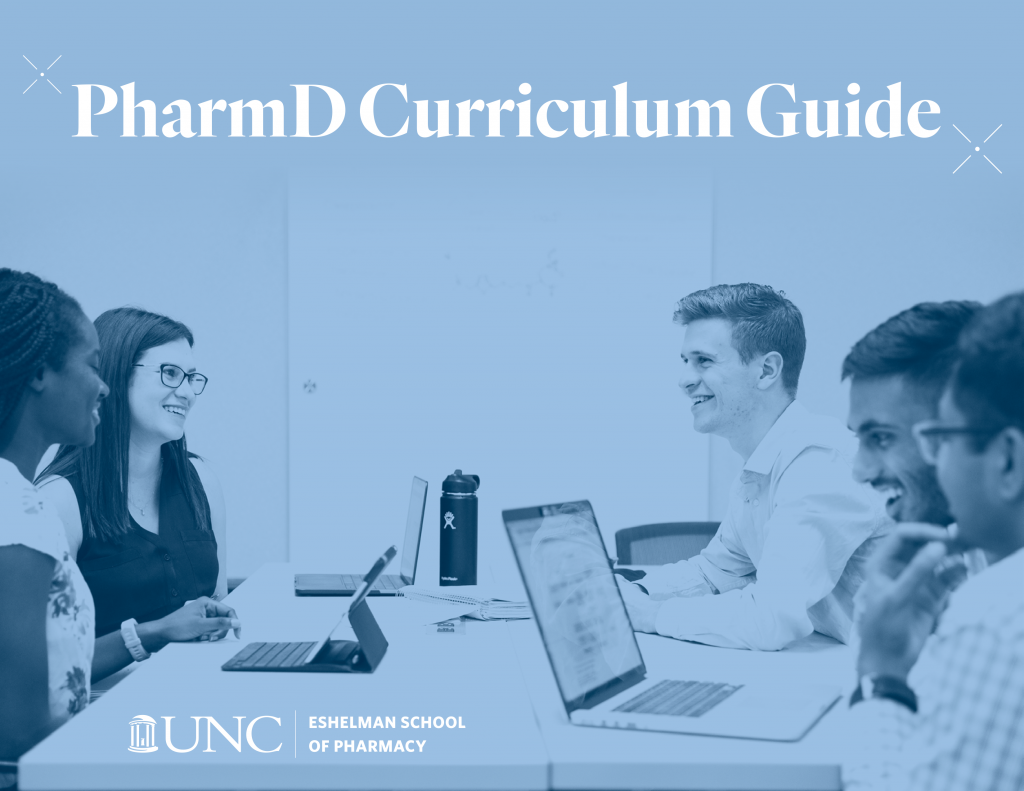Curriculum
In May 2019, the School graduated the inaugural class of students in our new, transformative Doctor of Pharmacy curriculum. With the new curriculum, students learn fundamental concepts before class and are challenged to apply and extend those concepts in the classroom. Immersion in patient care in the experiential setting begins immediately after the first year and occurs continually through years two, three, and the entire fourth year. Students also have more opportunities to develop leadership skills and experience with increased emphasis on inquiry, research, innovation, and problem-solving.
DOWNLOAD THE ESHELMAN ADVANTAGE GUIDECurriculum and Student Experiences
Curriculum Overview
Year One: Foundations of Pharmacy
- Introduces you to the foundational pharmaceutical sciences, which are the building blocks of pharmacy
- Gives you the solid foundation you’ll need to start working with patients and health-care professionals
Years Two and Three: Immersion in Patient Care and Engagement in Inquiry and Innovation
- Early experiences in the real-world practice of pharmacy followed by reflection and discussion
- Small-group and large-classroom experiences to further learning, professional development, and career-path exploration
- Immersion begins the summer after the first year.
Year Four: Advanced and Elective Pharmacy Practice Experiences
- Numerous advanced patient-care and elective rotations
- Opportunities for you to mature your approach to pharmacy practice and to define your career path
Specialized Learning Pathways
Students have the option to elect specialized pathways of learning:
- Research and Scholarship in Pharmacy (RASP) is a longitudinal, selective pathway within the Doctor of Pharmacy elective curriculum that is built around a mentored, in-depth, scholarly project where each student will (1) frame an answerable question with a faculty mentor, (2) generate and interpret relevant data, and (3) communicate their findings in an oral and written form. This experience could include hypothesis-driven research (e.g., preclinical, translational, clinical, epidemiologic, health services, educational) or non-hypothesis driven research (e.g., method development and validation, quality improvement).
- The Rural Pharmacy Health Certificate is a focused program of study that prepares student pharmacists for collaborative, inter-professional practices that serve the health care needs of rural and small communities. This program is offered on the Asheville campus as part of the School’s commitment to increasing the number of pharmacists practicing in rural, Western North Carolina.
- Our Global Pharmacy Scholars program sends more than 50 students annually to one of nine international locations for a one-month Advanced Pharmacy Practice Experience rotation. Students are exposed to different health care systems, cultures, and may participate in research initiatives with other academic institutions and organizations at select sites.
Immersion Experiences
We believe talented pharmacists are developed through practice. This is why our students complete over 50% of their curriculum (2,400 hours) in real-world pharmacy settings around the state of North Carolina and nationwide with world-class healthcare institutions and clinically advanced pharmacies. We provide future pharmacists with unprecedented experience in:
- Collaboration with nationally renowned physicians and healthcare teams
- Patient education and training in a variety of practice settings
- Holistic and culturally competent direct patient care
- Communication skills development
Experiential Education Regional Hubs
Health Systems | Community Pharmacies | Direct Patient Care Practices
Outside of the classroom is where our future pharmacists learn to:
- Assume responsibility for medication optimization
- Utilize health resources to make real-time treatment decisions
- Provide education to patients and other healthcare professionals
- Establish their role in an inter-professional healthcare team
- Critically approach current pharmacy issues and opportunities
- Practice with the highest ethical and professional standards
Curriculum Guide
Download our PharmD Curriculum Guide for detailed information on classes, immersion experiences and elective learning pathways.
Student Life
Hear From Our Students
Student Support
Academic Advising
The School employs a developmental approach to advising within the PharmD program – realizing each student is a unique person, student, and scholar. Faculty advisors serve as coaches, mentors, and advocates as students aim to maximize their growth and development over a 4-year PharmD experience.
Academic advising focuses intently on helping PharmD students plan and make meaning of value-added co-curricular experiences. At the beginning of the program, students are placed into “Pharmalies” – advising families – in an effort to build community. Three faculty advisors and six peer mentors are paired with students in each Pharmily. Pharmalies engage in consistent and on-going interactions.
Peer Mentor Program
The Peer Mentoring Program promotes the successful transition of new students to the PharmD experience. Peer Mentors are paired with new PharmD students to add an additional layer of support and advocacy throughout the first year of study. Peer Mentors provide guidance on all things related to the doctor of pharmacy program while also serving as a consistent point of contact for questions and referrals.
Tutoring
Free tutoring services are available for PharmD students through the Office of Student Affairs and the Rho Chi Honor Society. It is highly recommended that students seek help from their course TA and Course Director if they have a grade lower than a B in any class.
Eshelman Care Team
The Eshelman Care Referral provides coordinated assistance and support to students exhibiting concerning behaviors through a centralized structure and method for outreach, referrals, and case management. The care team uses discretion in collaborating with School units and University resources when collecting pertinent information for the development of appropriate interventions and strategies, also known as Care Action Plans. The central goal of Care Action Plans is to address immediate concern(s), and ultimately support the academic and personal success and wellness of our students. Care Team Referrals are categorized in four different areas: Academic, Health/Well-being, Professionalism and Discrimination/Harrassment (including sexual assault, sexual violence, interpersonal
Student Organizations
The School supports nearly 20 recognized PharmD student organizations that cover many areas of interests for students:
- Eshelman School of Pharmacy Student Senate
- Academy of Managed Care Pharmacy (AMCP)
- American Association of Pharmaceutical Scientists (AAPS)
- Carolina Association of Pharmacy Students (CAPS)
- Carolina Association of Pharmacy Students – Asheville (CAPS-Asheville)
- Christian Pharmacists Fellowship International (CPFI)
- College of Psychiatric and Neurologic Pharmacists (CPNP)
- Global Engagement Organization (GEO)
- Graduate and Professional Honor System
- Graduate Student Organization
- Kappa Epsilon
- Kappa Epsilon – Asheville
- Kappa Psi
- Mentoring Future Leaders in Pharmacy (M-FLIP)
- Phi Delta Chi
- Phi Lambda Sigma
- Recruitment Ambassadors Program (RAP)
- Rho Chi
- Student Health Action Coalition (SHAC)
- Student National Pharmaceutical Association (SNPhA)
- Student National Pharmaceutical Association – Asheville (SNPhA-Asheville)
- Taking Action By Service (TABS)
- Student Chapter of Clinical Pharmacy (SCCP)
- Student Chapter of Clinical Pharmacy – Asheville (SCCP – Asheville)
Starting with the first semester in the program at the Student Senate Organization Carnival, students are provided many opportunities to learn about recognized organizations in order to make well informed membership decisions. Each student organization is assigned at least one faculty advisor who works closely with the organizations as it carries out goals and priorities.





